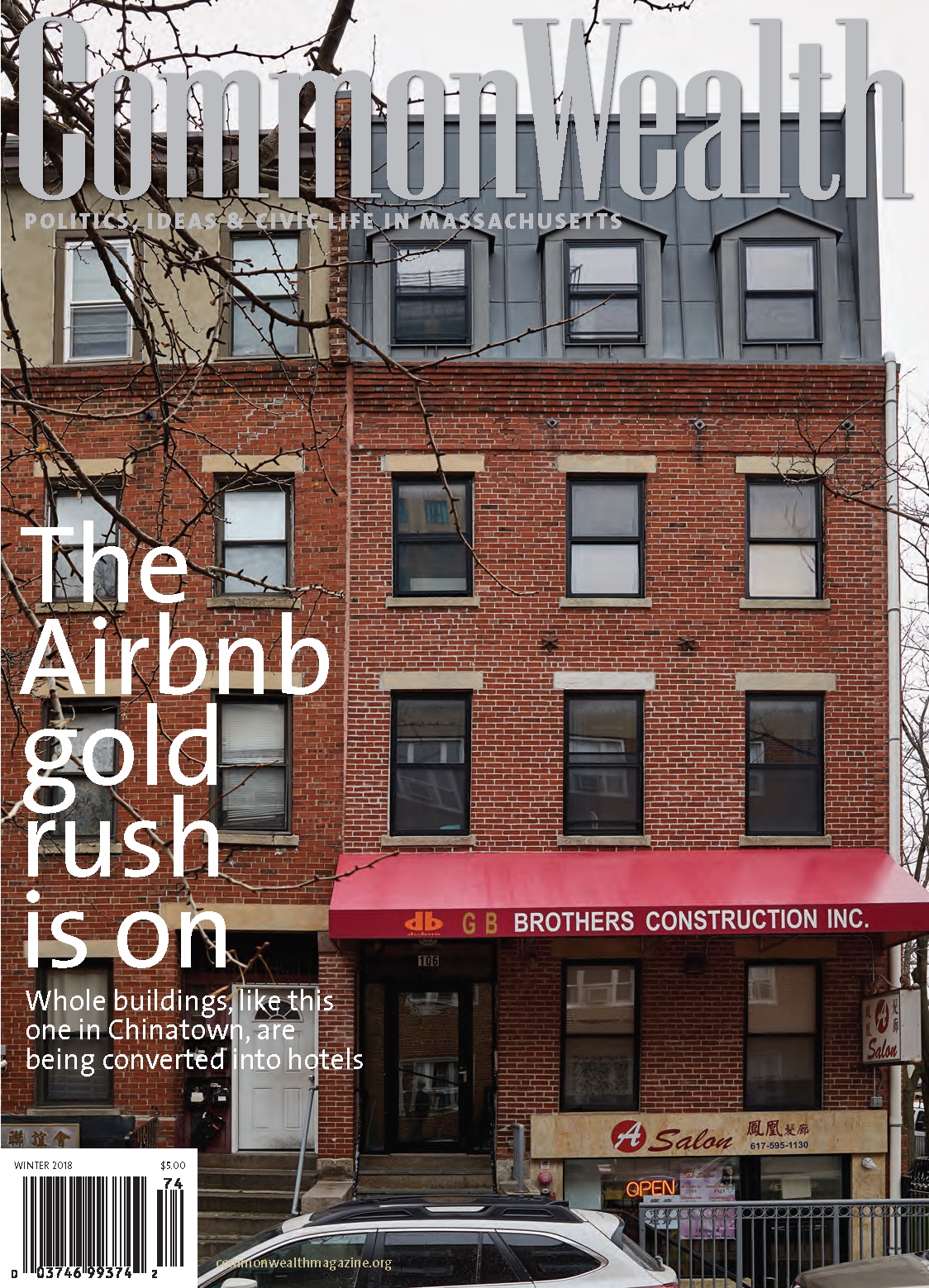
Apps are wild in CommonWealth’s winter issue, which is in the mail and up on our website today. The apps we’re writing about are Airbnb, Uber, and Lyft – all of them popular with the public but creating headaches for policymakers who are slowly – and warily – grappling with their fallout.
Jack Sullivan writes about Airbnb, an app that started out as a way to rent out the empty back bedroom and has morphed into something else, with entire buildings being turned into what amount to Airbnb hotels. All this is happening under the noses of state and local policymakers who are just starting to wake up to the impact on housing production and tax revenues. Oh, and for those who remember those Prince Spaghetti commercials with Anthony, Jack has a special treat in store.
Uber and Lyft were originally seen primarily as a threat to taxis, but I look at how their growing popularity is starting to impact the MBTA and other transit systems around the country. There are many potential explanations for the decline, but most analysts believe the ride-hailing apps are sucking people out of buses and subways and into Uber and Lyft cars. The first order of business would seem to be getting the data on what’s happening, so why are state officials in Massachusetts so reluctant to press. Uber and Lyft for information on the trips they are providing?
Michael Jonas looks at the 25th birthday of education reform in Massachusetts. There is certainly plenty to celebrate – our No. 1 ranking in national reading and math assessments and sharply higher high school graduation rates – but the achievement gap the law aimed to eliminate shows no signs of narrowing. Michael turns up an interesting discussion about what needs to be done, but in an environment where compromise seems illusory (remember the fights over charters and high-stakes testing?), the outcome seems far from certain.
For more on ed reform, check out John Schneider’s review of former state education commissioner David Driscoll’s new book on how the 1993 education reform law came to be. And don’t miss Shannah Varón’s account of how Boston Collegiate Charter School in Dorchester attained its racial diversity.
We also take stock of Worcester’s renaissance (it seems real) and examine how marijuana legalization plays in poor and minority communities.
We sit down with Yvonne Spicer, the first mayor of the new city of Framingham, and chat with Michael Botticelli, who draws on his personal experience with addiction in running the Grayken Center at Boston Medical Center.
Linda Enerson follows the uphill struggle of two women from Puerto Rico who relocated to Springfield with their children after Hurricane Maria devastated their homeland. Linda also explores businesses sprouting up in Springfield that transform workers into owners.
Colman M. Herman examines the spending habits of the state’s district attorneys and also takes a peek inside the email account of UMass Boston’s “Dr. Evil.”
Shawn Zeller describes what it’s like for Sen. Elizabeth Warren, who is on the outside looking in as President Trump takes control of the consumer board she created.
Lastly, I’ve written an editor’s note that makes the case for supporting what we do here at CommonWealth. Take a read and consider helping us keep doing what we’re doing.
Thanks,
Bruce Mohl, Editor
